Question-------------------------------------------
The text above is a follow-up to ...
Thank you for your reply I am a little scared about handling the bigger of the two and I definitely don't want to get bit by her the smaller one I should do better with. Is there a better way to try to bond with the bigger bird with out getting bit or is there something that I can wear on my hand ?
-----Question-----
Hi my name is Justin, and I have worked for a animal hospital for about 8 years. I manly have had horses, dogs, and cats. I only have a horse right now but on Thursday I will be picking up my new family members. So back to my question, I am getting two parrots one is a military/Gold or It's a military/Blue I have to find out again although I did see the parents, anyway she is 22 years old and only stick trained but does not seem Aggressive but the lady use to handle both of them but she is going blind and stopped. I really don't mind although I would like to be able to get them to trust me and handle them one day the other is another kind of parrot she use to also be handled all the time but not anymore i just want to get to the point were i don't need the sick to take them out. any help would be great...
thank you Justin
-----Answer-----
Congratulations on your new additions! You'll love being their companion.
The most positive thing is that these two weren't abused and were loved for many years. They may take some time to get used to you, but with patience (yours), they will.
The most valuable advice I can give you is to take your time. At about 22 years old, they have another entire lifetime in them (another 20+ years).
The stick is a great tool for problem situations and it's fine to start out with, but as soon as you get them on the stick, try to quickly get them to your arm. The 'trick' is to lower them below your eye level, their heads should be at about your shoulder level or slightly below. That way you have the 'top bird'/dominant position and they'll be more cooperative. With one smooth and quick move, while talking gently and pleasantly, bring the bird out of the cage on the stick to your other, waiting arm. Offer a favorite treat (we reserve giving roasted, unsalted peanuts for special times like this).
It shouldn't take long before you can reach in with your arm to pick them up, and they should even anticipate it and look forward to it.
Make sure they spend at least two hours, preferably lots more, out of cage and frequently handled. Talk to them a lot, even if it's just describing what you're doing or telling them your problems.
Whenever you get impatient, remind yourself you've got years to go! One of our recent rescues has been with us nearly four years and is still getting used to us, learning us as we continue to learn her.
Another 'trick' is to use several layers of old (clean) socks, cut the toe part off and slide them on your arms. That way - you can put your arm in for a 'step up' and if you're bitten, you can stand it. Once they realize a bite isn't effecting you, they tend to stop.
Take a look at our site - we have lots more about birds and how to be loved by them.
www.4AnimalCare.org
AnswerI understand how you feel - a bite can hurt for days! But remember that the bird can tell if you're intimidated, even the slightest hesitation could be all the bird needs to know he has control.
It's strongly advised against to use a glove. If gloves are used, the bird will never learn to be gentle to your hands. This isn't how you want to go.
The option is to reach in and offer your arm (not hand) - and having your arm padded as outlined earlier - is your safeguard.
Have a treat available so the bird associates your hand/arm with something very enjoyable and positive.
Time is your best friend. Be patient - and keep checking back with me - I'll do whatever I can all the way for you.

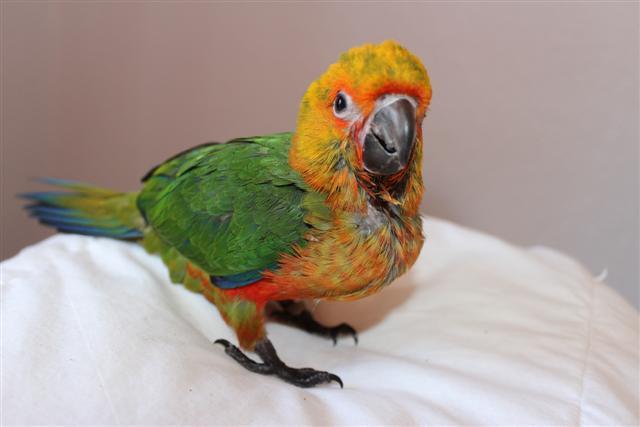 Jenday Conure Weaning?
Question
Castor the Conure
Hi
I have a 9 week o
Jenday Conure Weaning?
Question
Castor the Conure
Hi
I have a 9 week o
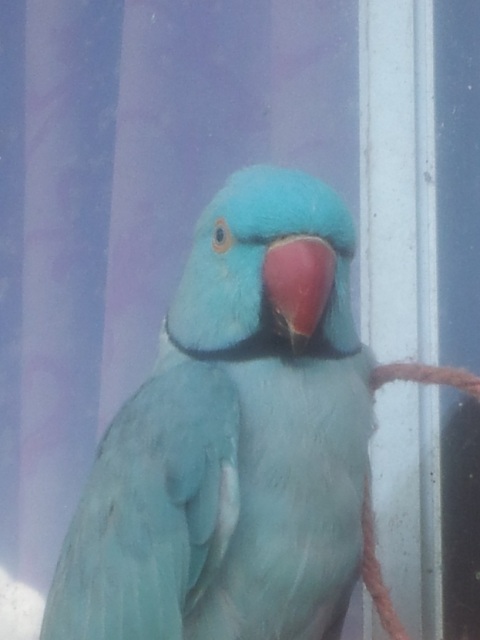 RE: Indian Ringneck probems
Question
Indy our Ringneck
Thank you for your he
RE: Indian Ringneck probems
Question
Indy our Ringneck
Thank you for your he
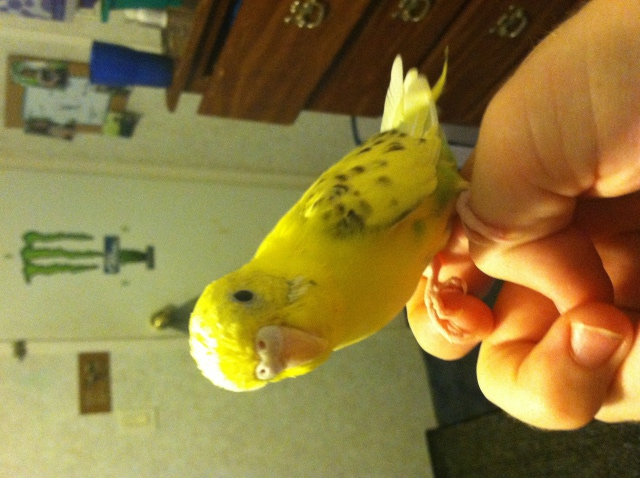 Parakeet gender
Question
Parakeet
Hi, I looked for an expert und
Parakeet gender
Question
Parakeet
Hi, I looked for an expert und
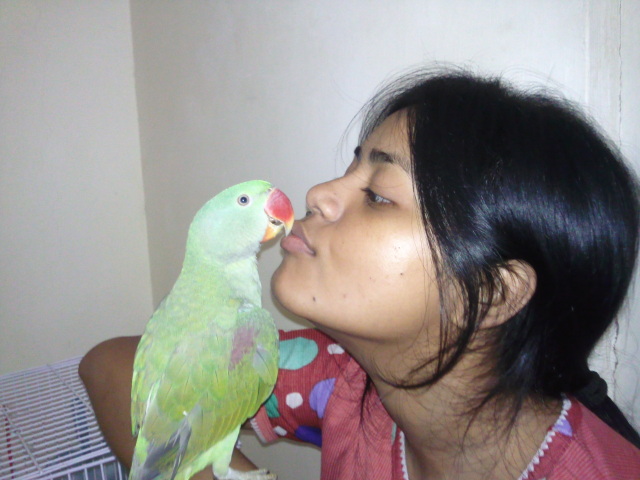 can i give my parrot chole(chana) called in hindi
Question
my little chaddi alexa
dear sir,
can give chan
can i give my parrot chole(chana) called in hindi
Question
my little chaddi alexa
dear sir,
can give chan
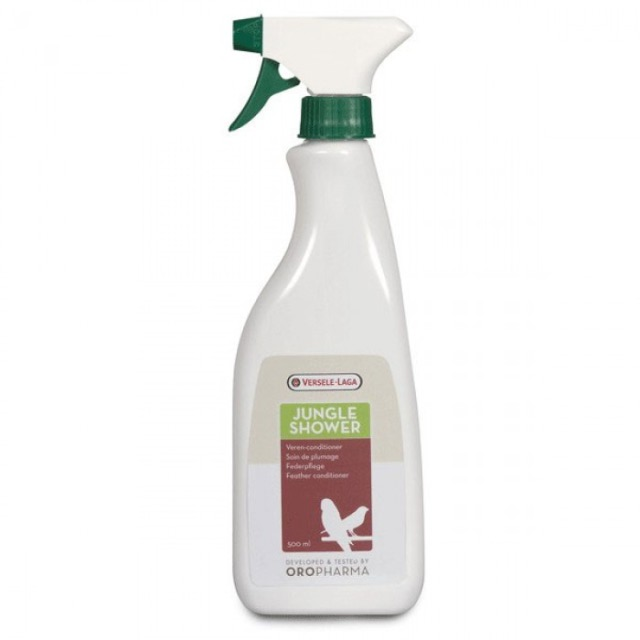 Indian Ringneck Health Issue
QuestionI have an Indian Ringneck who had been neglecte
Indian Ringneck Health Issue
QuestionI have an Indian Ringneck who had been neglecte